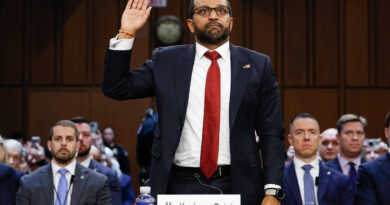Understanding the U.S. Withdrawal from UN Organizations: Key Insights
This directive is part of the United States’ strategy to disengage from international obligations that the Trump administration deems misaligned with U.S. priorities.
President Donald Trump issued an executive order to exit U.N. agencies, including the Human Rights Council (UNHRC), as a component of a broader national retreat from several international organizations.
This directive came shortly after a separate announcement regarding the withdrawal from the World Health Organization (WHO). Israel declared its exit from the UNHRC on February 5, claiming the council exhibited “institutional bias” against the nation.
In the aftermath of World War II, the United States played a crucial role in establishing the United Nations, with hopes that the international entity and its peacekeeping efforts could mitigate global conflicts.
According to the order, the U.N. has “drifted from this mission,” asserting that it acts “contrary to the interests of the United States while undermining our allies and propagating anti-Semitism.”
The order mandates that the Secretary of State assess and report on which international organization’s “conventions or treaties foster radical or anti-American sentiment.”
UNHRC, UNRWA, and UNESCO
The Trump administration’s order accused UNRWA of being “infiltrated by members of groups long designated by the Secretary of State as foreign terrorist organizations.”
The administration has also made allegations against UNHRC and UNESCO.
“The UNHRC has shielded human rights violators by permitting them to escape scrutiny, while UNESCO has shown an inability to reform itself, continually exhibiting anti-Israel sentiments over the last decade and neglecting to address issues surrounding accruing debts,” reads the order.
Earlier Withdrawal
The executive order recalled a prior action taken in 2018 by the former Trump administration to disengage from the UNHRC, reiterating that the United States would need to “reassess our commitment to these institutions.” This previous departure was accompanied by a cessation of funding for UNRWA as well.
In 2017, Trump articulated, “The United Nations must reform if it is to serve as an effective ally in addressing threats to sovereignty, security, and prosperity.”
In the earlier cessation of U.S. membership in these organizations, funding to UNESCO was also eliminated. The White House noted that the 2018 withdrawal led to positive outcomes, stating that UNESCO “took measures to enhance its rapport with Israel.”
Critics of the UNHRC have also raised alarms about the organization’s inclusion of nations known for violating fundamental human rights.
Withdrawal from WHO
On the first day of his second term, Trump enacted an executive order to pull the United States out of the World Health Organization (WHO), fulfilling a commitment from his first term.
Trump’s order issued on January 20 ceased U.S. financial contributions to the U.N. agency, citing the WHO’s mishandling of the COVID-19 outbreak originating from Wuhan, China, alongside other international health issues.
The report indicates that the WHO is accused of yielding to the influence of the Chinese Communist Party, placing “China’s political interests above its international responsibilities.”
As part of its supposed shortcomings, the WHO is said to have overlooked warnings from Taiwan on December 31, 2019, regarding “atypical pneumonia cases” in Wuhan, which they urged the WHO to investigate.
Jackson Richman contributed to this report.




